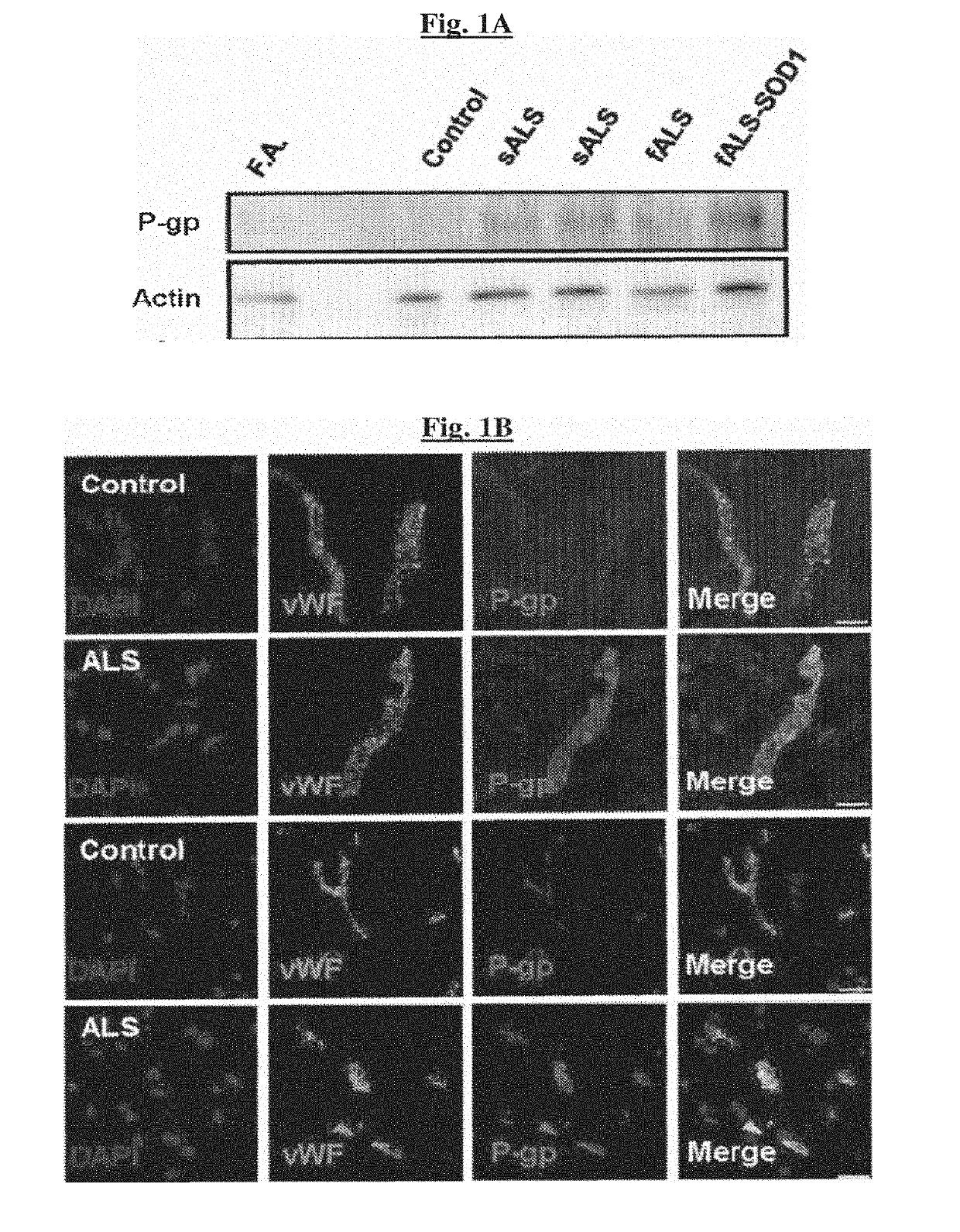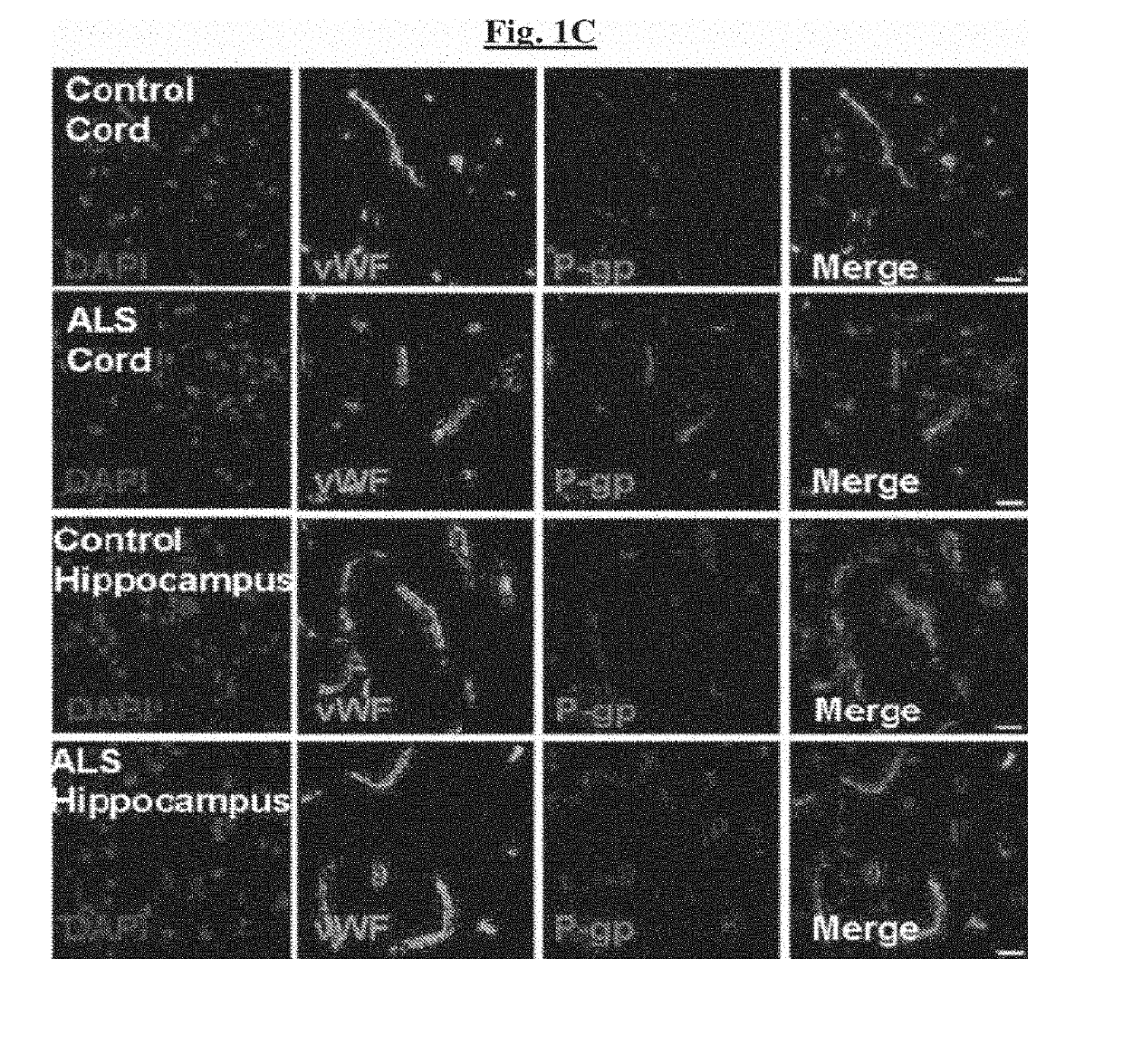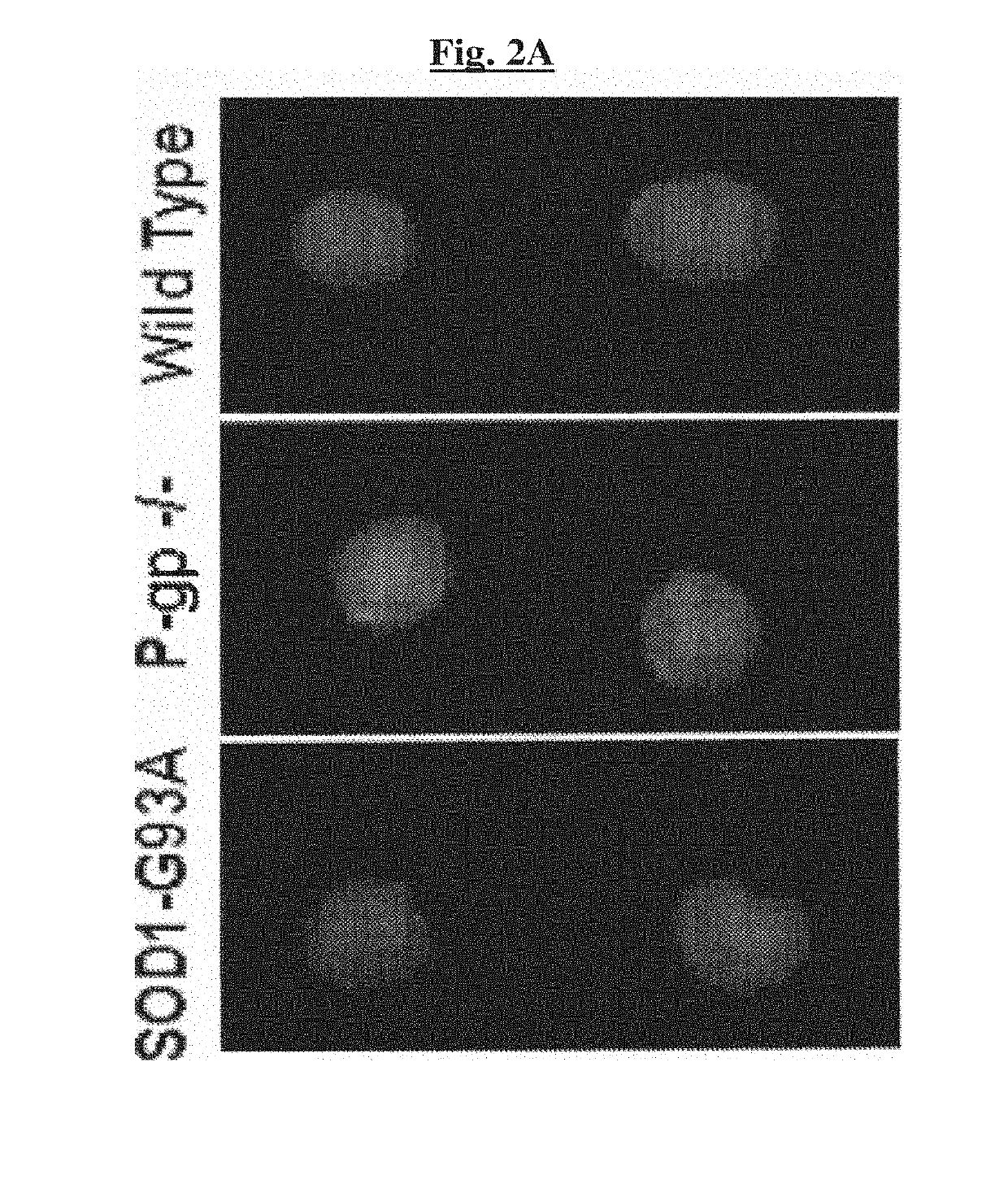Novel methods of treating a neurodegenerative disease in a mammal in need thereof
a neurodegenerative disease and mammalian technology, applied in the field of new methods of treating a neurodegenerative disease in a mammal in need thereof, can solve the problems of mutant sod1 induced toxicity by a gain of function, motor neuron degeneration, and failure of defenses against oxidative stress upregulatory programmed cell death (apoptosis), so as to improve survival, increase the peak of compound muscle action potential, and increase spinal cord concentration
- Summary
- Abstract
- Description
- Claims
- Application Information
AI Technical Summary
Benefits of technology
Problems solved by technology
Method used
Image
Examples
examples
[0132]The invention is now described with reference to the following Examples. These Examples are provided for the purpose of illustration only, and the invention is not limited to these Examples, but rather encompasses all variations that are evident as a result of the teachings provided herein.
Materials and Methods:
Animals:
[0133]Mice were housed in accordance with Thomas Jefferson University Institutional Animal Care and Use Committee (IACUC) and the NIH Guide for the Care and Use of Laboratory Animals. Mutant SOD1-G93A mice modeling ALS [B6.Cg-Tg(SOD1-G93A)1Gur / J] were purchased from Jackson Laboratories (Sacramento, Calif., catalog no. 004435). Male SOD1-G93A mice were bred with C57BL / 6 females. Offspring were genotyped to determine presence of the human SOD1 transgene. As transgene copy number is known to fluctuate and decrease through subsequent breeding generations, quantitative RT-PCR was performed to exclude mice with decreased SOD1 human transgene copy number.
[0134]P-glyco...
example
[0145]Homogenates of lumbar spinal cords of two sporadic and two familial ALS patients displayed increased levels of P-gp compared to controls, including a control patient with Friedreich's Ataxia (FIG. 1A). By immunohistochemistry, increases in P-gp expression were found in endothelial cells of the BSCB (FIGS. 1B-C). A selective, tissue-specific increase of P-gp expression was found in areas affected by the disease, specifically spinal cord, while P-gp levels remained low in the unaffected hippocampus (FIG. 1C). Microvascular leakage and reduced tight junction protein expression are known to occur in ALS and could contribute to motor neuron damage. Without wishing to be limited by any theory, upregulation of P-gp may occur as a compensatory response to a leaking BSCB.
[0146]In certain embodiments, activation of P-gp can prevent effective drug delivery in the CNS, reducing drug bioavailability. To demonstrate this, the in vivo accumulation of a specific P-gp substrate, LD800, was exa...
PUM
 Login to View More
Login to View More Abstract
Description
Claims
Application Information
 Login to View More
Login to View More - R&D
- Intellectual Property
- Life Sciences
- Materials
- Tech Scout
- Unparalleled Data Quality
- Higher Quality Content
- 60% Fewer Hallucinations
Browse by: Latest US Patents, China's latest patents, Technical Efficacy Thesaurus, Application Domain, Technology Topic, Popular Technical Reports.
© 2025 PatSnap. All rights reserved.Legal|Privacy policy|Modern Slavery Act Transparency Statement|Sitemap|About US| Contact US: help@patsnap.com



